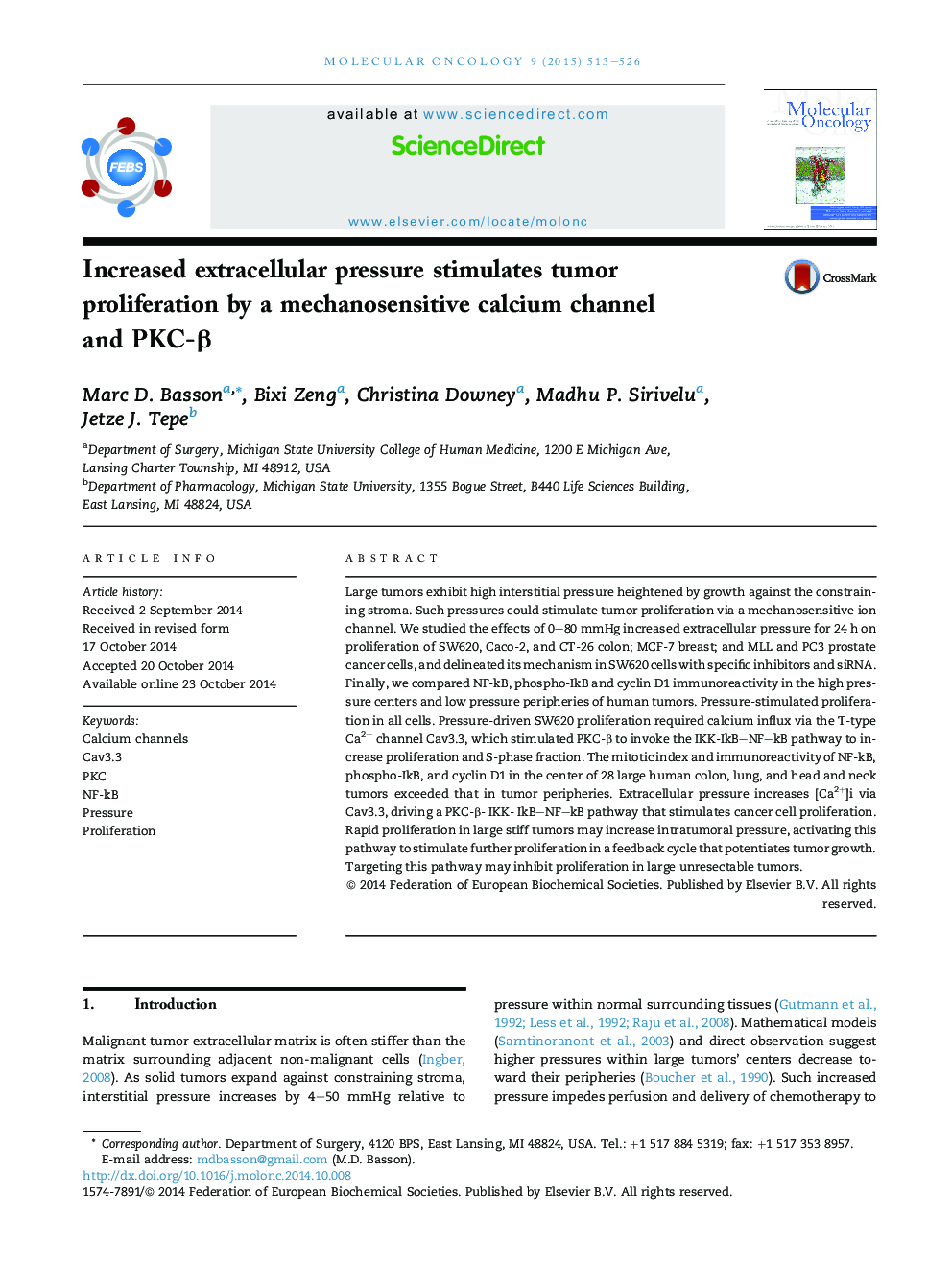| Article ID | Journal | Published Year | Pages | File Type |
|---|---|---|---|---|
| 10914836 | Molecular Oncology | 2015 | 14 Pages |
Abstract
Large tumors exhibit high interstitial pressure heightened by growth against the constraining stroma. Such pressures could stimulate tumor proliferation via a mechanosensitive ion channel. We studied the effects of 0-80 mmHg increased extracellular pressure for 24 h on proliferation of SW620, Caco-2, and CT-26 colon; MCF-7 breast; and MLL and PC3 prostate cancer cells, and delineated its mechanism in SW620 cells with specific inhibitors and siRNA. Finally, we compared NF-kB, phospho-IkB and cyclin D1 immunoreactivity in the high pressure centers and low pressure peripheries of human tumors. Pressure-stimulated proliferation in all cells. Pressure-driven SW620 proliferation required calcium influx via the T-type Ca2+ channel Cav3.3, which stimulated PKC-β to invoke the IKK-IkB-NF-kB pathway to increase proliferation and S-phase fraction. The mitotic index and immunoreactivity of NF-kB, phospho-IkB, and cyclin D1 in the center of 28 large human colon, lung, and head and neck tumors exceeded that in tumor peripheries. Extracellular pressure increases [Ca2+]i via Cav3.3, driving a PKC-β- IKK- IkB-NF-kB pathway that stimulates cancer cell proliferation. Rapid proliferation in large stiff tumors may increase intratumoral pressure, activating this pathway to stimulate further proliferation in a feedback cycle that potentiates tumor growth. Targeting this pathway may inhibit proliferation in large unresectable tumors.
Related Topics
Life Sciences
Biochemistry, Genetics and Molecular Biology
Cancer Research
Authors
Marc D. Basson, Bixi Zeng, Christina Downey, Madhu P. Sirivelu, Jetze J. Tepe,
